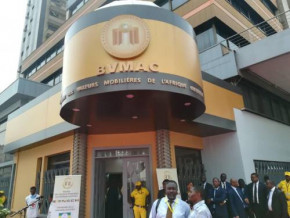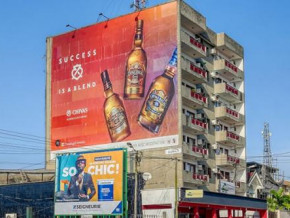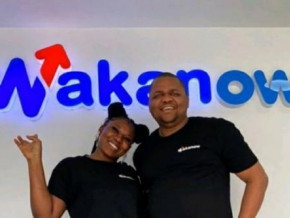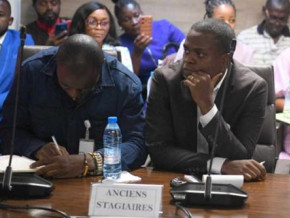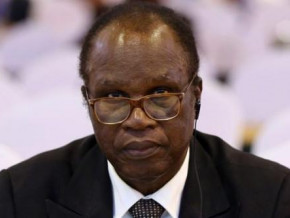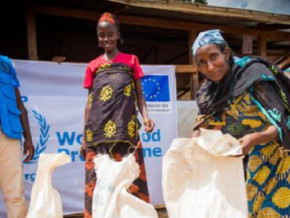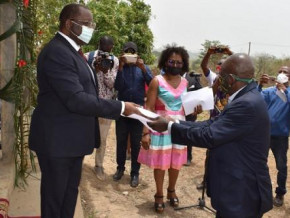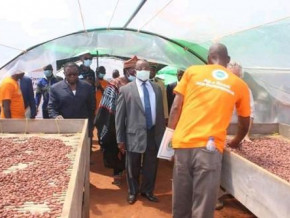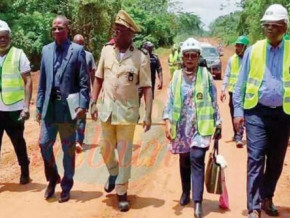
“Contrary to popular belief, there is economic stability while working in Cameroon”
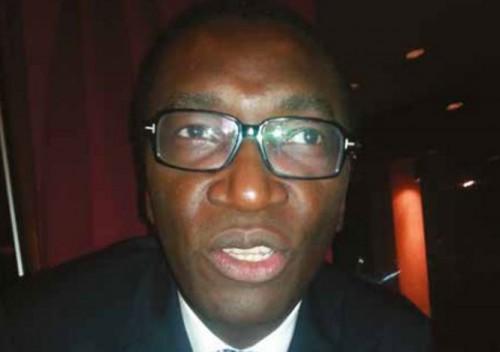
(Business in Cameroon) - The Cameroon-born Swiss national, Roger Kamgaing, Executive Vice-President of SGS in charge of government and institution services, recently paid a visit to Cameroon with a delegation of Swiss investors accompanied by the EMA Invest Foundation. He explains his daily work at SGS and the company’s plans for Africa.
Business in Cameroon: You were appointed in April as Executive Vice-President of SGS in charge of government and institution services. You returned to the company where you were fist hired in 1996. Why did you abandon Kamgaing Associates and accept the offer to return to SGS?
Roger Kamgaing: (Laughter) I didn’t abandon Kamgaing Associates. I stopped doing some of Kamgaing Associates’ activities because I wanted to accept the SGS position in which you seem me today. The opportunity appealed to me. Unfortunately, in accepting the offer, I could not risk a potential conflict of interest by continuing to act in a consultative capacity. I therefore decided to suspend my advisory activities and particularly the work in which I was involved with some governments.
BC: You announced on your website that Kamgaing Associates is going to reinvent itself. How?
RK: Kamgaing Associates is in the process of reinventing itself. I’m not going to reveal everything yet, but we’re working with some partners on projects related to business development in Africa.
BC: Tell us a bit about SGS
RK: Today, SGS has around 88,000 employees. The company has been around since 1875. Our goal is to soon reach eight billion dollars in sales. Our growth plan is aggressive and we continue to maintain our growth rate. This is why we are still the industry leader with an organic growth rate of 6% per annum. By organic growth, I am referring to growth we have generated ourselves.
BC: You recently visited Yaoundé in Cameroon as a part of a delegation of Swiss investors accompanied by the EMA Invest Foundation. What was the aim of this visit?
RK: Our visit was the outcome of SGS’ participation in the 9th EMA Invest FORUM held in Geneva in October 2013. I did not personally attend, but SGS was well represented at the 9th Forum. It was logical for us to then visit Cameroon. We are already working in Cameroon, as you know. We believe in this country. By accompanying these investors, we were able to show them that one can work confidently in Cameroon. And contrary to popular belief, there is economic stability while working in Cameroon.
BC: What’s a typical day for the Executive Vice-President of SGS in charge of government and institution services?
RK: No two days are the same. This is firstly because the institutions and governments with which we work are located around the globe. They are in Europe, Asia, Latin America, the Middle East and Africa. We are highly diversified. Secondly, my work really involves directing the teams. I am less involved in operations than before. My role is now to guide our teams and create a dynamism that leads us to new horizons.
BC: What does it mean to be the only black person on the board of operations of a company like SGS?
RK: (Laughter). SGS is a company in which the whole world is represented. We have Europeans, Asians, Africans and more. There’s nothing extraordinary about it.
BC: SGS offers corporate inspection, auditing and certification. In general, what are SGS’ goals and main plans for Africa?
RK: In Africa, we are growing quickly. I can speak about the areas I lead: our relations with governments. And as you know, we have nine other divisions. In Africa, we have a lot of agricultural projects. With the service we provide in agriculture, which we call “precision farming” and which involves supporting the agricultural community with performance improvement and optimisation without resorting to GMOs and working the soil without exhausting it. We also work more and more in the industrial arena: evaluating public works, which is very important and, of course, the technical screening of vehicles. We also have a lot of activities developing in the area of the environment and pharmaceutical sciences.
BC: Who are your main customers in Africa?
RK: Besides the governments, we also work with industry and trade entities. Businessmen are actually our top customers and producers. They come to us for solutions for their business activities. For the Cameroonian companies that have security needs, I would say to them: “We’re here”. Come see us. I’m being serious when I say this. We are really adept at understanding out clients’ and partners’ needs. For us, no client is too small. Everybody is important.
Mags frontpage
- Most read 7 days
- shared 1 month
- read 1 month




